Right can learn from Giuliani’s sad decline
For conservatives everywhere, there is still time to choose the path that the once-dominant mayor of New York City took — seriousness, effectiveness, reality, moderation.
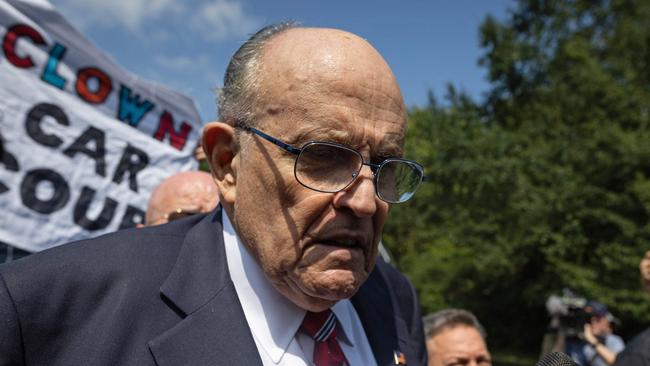
It was the endorsement the press had been waiting for. Who would the New York City mayor, Rudy Giuliani, back to be governor of New York State in 1994? Television stations broke into their coverage, even into the Oprah Winfrey show, to carry the mayor live.
The Republican – one of the biggest figures in American conservative politics – had built the suspense. And now he announced his decision. “My choice is Mario Cuomo.”
He was endorsing the liberal Democrat. Said his (generally not very sympathetic) biographer Andrew Kirtzman: “For all the conservative policies the mayor adopted on the way to city hall, he was at heart a moderate.”
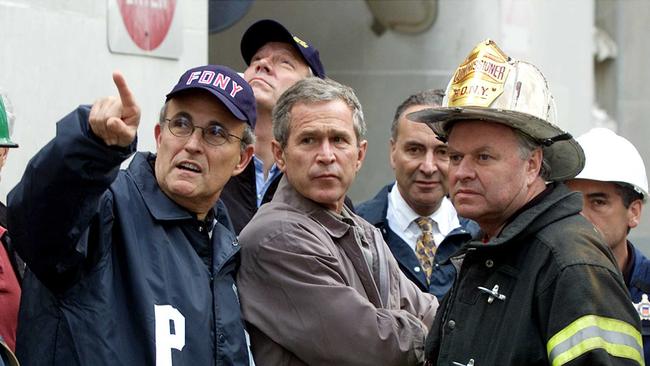
Last week Giuliani created a similar sort of media kerfuffle. But this time it was caused by his surrender at Fulton county jail in Georgia on racketeering charges. His mugshot was later released by the sheriff’s office. It was the latest legal difficulty faced by the former mayor, following his support for Donald Trump’s bogus claims that the 2020 presidential election had been stolen.
As well as the one-time prosecutor becoming a defendant, the once-dominant Giuliani has become a laughing stock. He famously held a press conference which was billed as being in the Four Seasons hotel but was in fact held in the car park of a small business, Four Seasons Total Landscaping. He addressed the media with black hair dye running down his face. And he allowed Sacha Baron Cohen, dressed as the comedy character Borat, to make him look a fool, or worse, in a major Hollywood film.
All this trouble he brought upon himself, and it is impossible to feel sorry for him. But nonetheless, the fall of Giuliani is a tragedy. And the choices he has made provide a lesson.
There was a time when Giuliani symbolised a way forward not just for the right but also for urban policy in America’s troubled cities. By the early 1990s New York was the most prominent example of the damage that can be done by well-meaning ideas and weak leadership. Surrendering to vested interests, tolerance of petty crime and disorder, spending that was out of control and welfare provision without conditions had all produced predictable consequences.
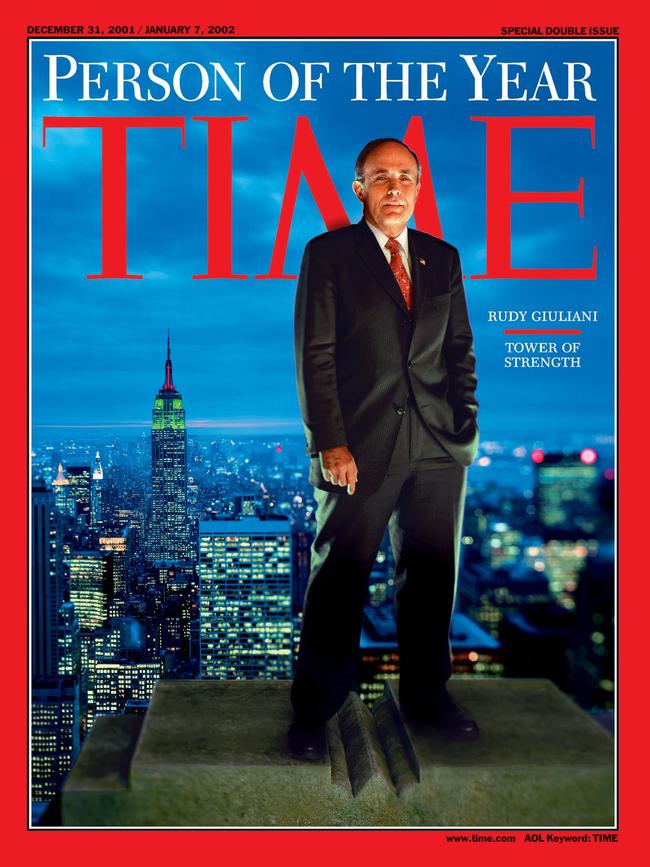
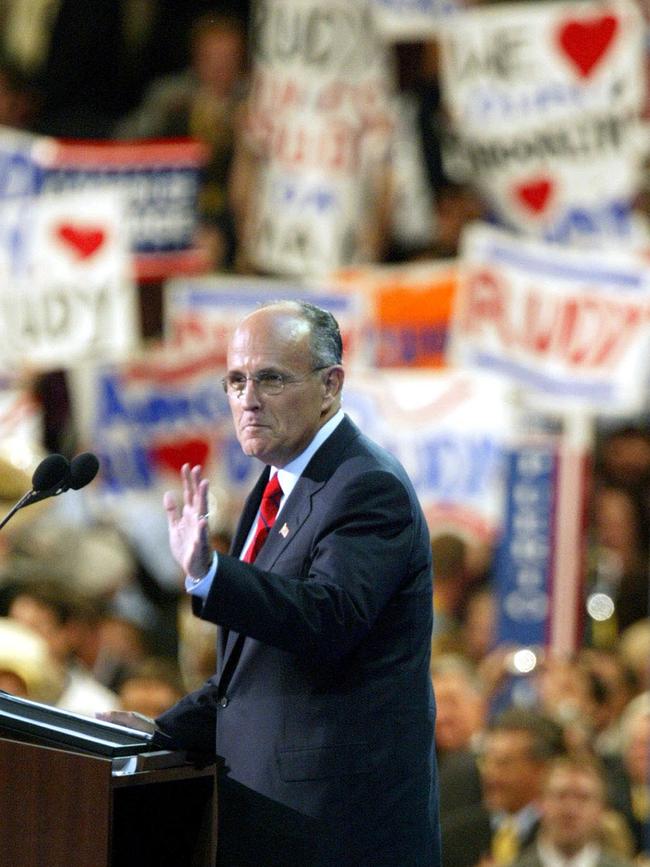
New York couldn’t clean its streets, wouldn’t police its subways, couldn’t retain its businesses or jobs and was unable to ensure the safety of its residents. It was a gigantic failure of urban liberalism, similar to that which would later bankrupt Detroit.
New York did not go bankrupt. A recently released American documentary, Gotham: the Fall and Rise of New York, tells the story of the city’s recovery. And Giuliani was at the centre of it.
While some of the solutions to New York’s problems were traditional right-wing ones – regaining control of public spending being the most important – others departed from the libertarianism fashionable among Republicans at the time. And almost all involved co-operation, intellectually and practically, between Republicans and Democrats.
Taking a position on petty crime that was both firmer (cracking down on people jumping the train turnstiles without a ticket, arresting people for urinating in the street, prosecuting minor theft) and more creative (employing a data-driven approach to identify crime hot spots), the city government and police cut crime, driving down the murder rate, making New York safe to live in and walk around.
At the same time, resources were invested in keeping public spaces clean, particularly iconic ones such as Times Square. And keeping the subway free of graffiti.
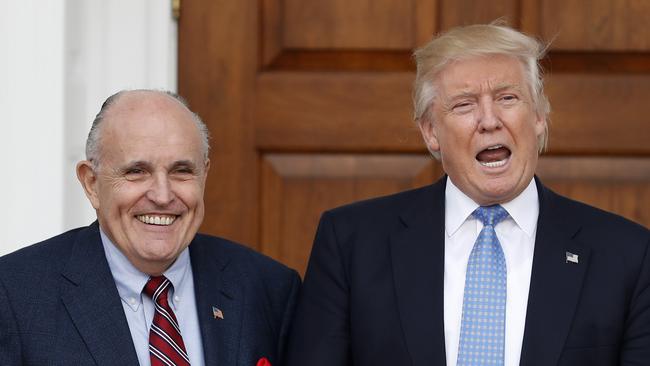
Working with centrist Democrats in Washington and the city, New York championed welfare reform. One project involved a company called America Works which found welfare recipients employment for a fee, the fee being linked to people getting and keeping jobs. Both the social and economic outcomes from this were excellent, as were the results of requiring people to work in order to claim welfare. Experiments with schools choice that put power in the hands of parents and allowed teachers to experiment also proved successful. So did co-operation with the private sector to address the city’s housing problems.
In other words, here was an agenda that was unorthodox, creative, non-partisan, realistic and effective. And while Giuliani most certainly does not deserve all the credit for it – at least as much belongs to Bill Clinton, the police chief at the time William Bratton, intellectuals at the Manhattan Institute and many others – he associated himself with it and provided leadership for it.
The most famous period of Giuliani’s mayoralty came right at the end, after 9/11. He became a symbol of democracy all over the world; he visited London to receive an honorary knighthood and was pictured with Paul McCartney. But it is the earlier period of policy leadership that deserves to be seen as his high point.
The Giuliani who was booked at Fulton county jail has always been there. There has always been a mean and self-righteous streak. He pushed out Bratton as police chief because he didn’t want to share the credit for crime falling. He was often worryingly authoritarian and always a risk-taker.
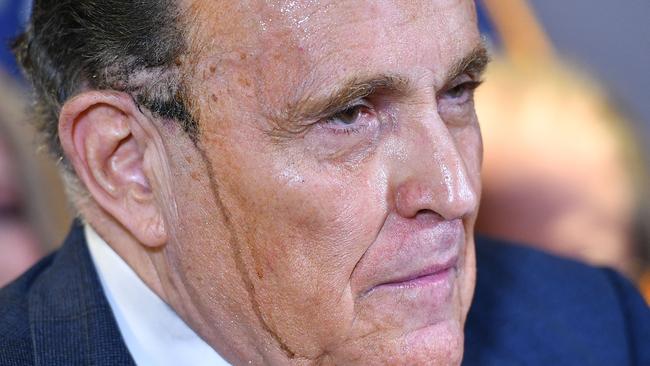
Even his generosity to the liberal Cuomo is seen by some as simply a vindictive gesture to the Republican senator for New York whose protege was the party’s gubernatorial candidate. It was also an example of the way he does his own thing even when it could make him look foolish. Giuliani stumped all over New York and Cuomo still lost.
In the final years of his mayoralty and beyond, his personal life has been chaotic and there have always been stories of drinking. When his third wife divorced him (messily) she said he wasn’t the same person any more and that this was her judgment “as a spouse and a nurse”.
Yet for all his lifelong flaws, and for all his more recent deterioration, Giuliani has also made a conscious choice. He has chosen the bad side of his character and his politics over the good side. And it is tragic.
He has chosen bitterness, partisanship, conspiracist thinking, delusion and lies over creativeness, moderation, realism and co-operation. In the process, he has lost his dignity and may even lose his liberty.
When Giuliani was mayor, the New York businessman Donald Trump said of him that some people love him and “I happen to be in love”. It is a great irony that this love was accorded by Trump to all the qualities Giuliani has abandoned on the former president’s behalf. Sloppy, error-strewn, unhinged legal advice won’t be loved even by Trump.
It is too late now for Giuliani. He is forever spoilt. But for conservatives everywhere, in this country, in the United States and all over Europe, there is still time to choose the path Giuliani once took – seriousness, effectiveness, reality, moderation – over the one he is now on.
The Times

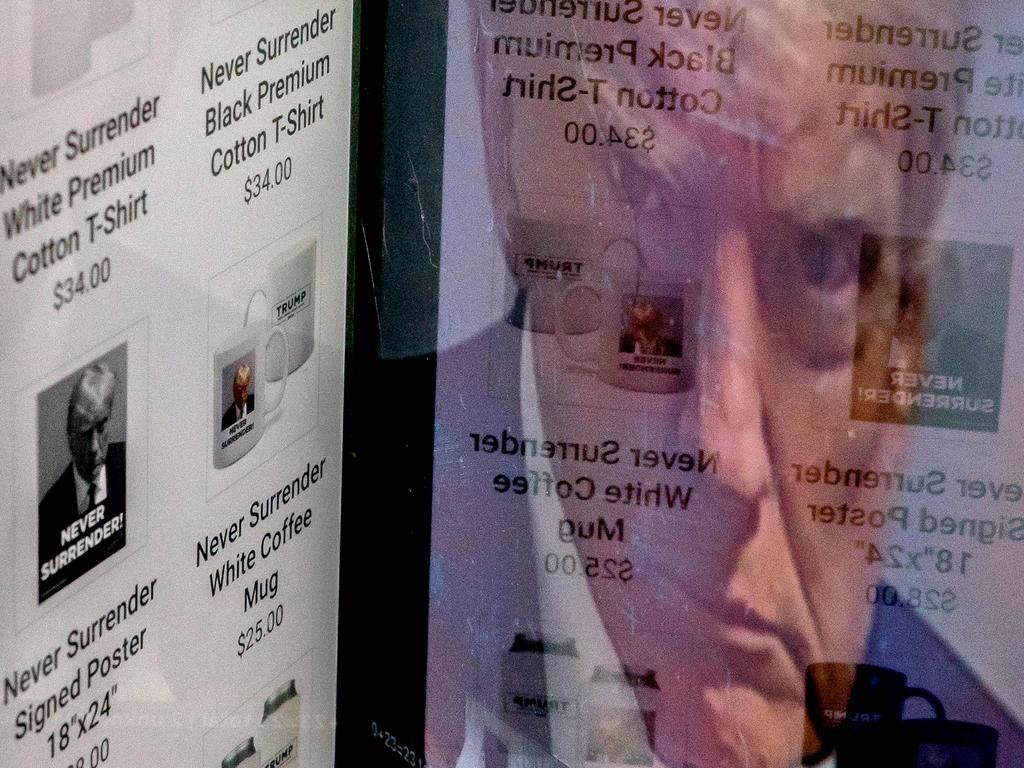





To join the conversation, please log in. Don't have an account? Register
Join the conversation, you are commenting as Logout